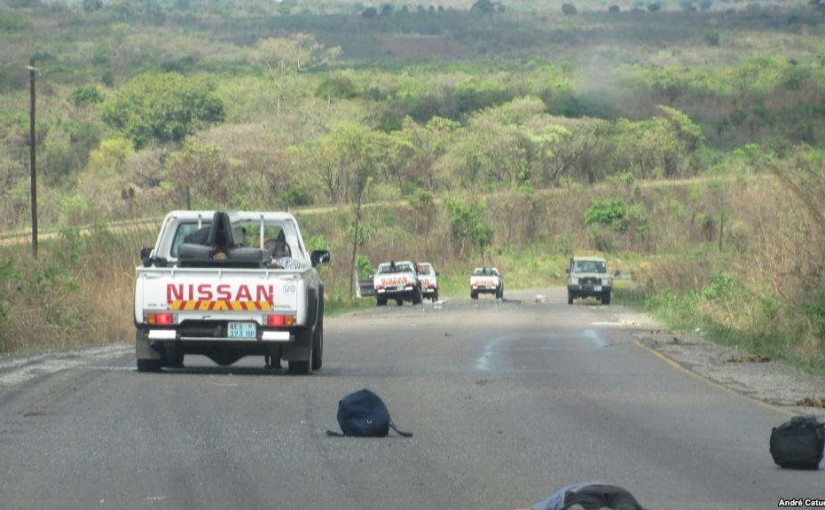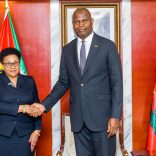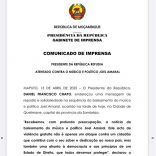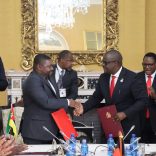Indian Navy’s First Training Squadron arrives at Maputo port, Mozambique
Amnesty International Annual Report criticizes impunity of FDS and Renamo members in Mozambique

Voa (File photo)
The Amnesty International report on Mozambique has denounced death squads, the repression of demonstrations and inability of the Mozambican police to solve crimes, and says members of Mozambique’s Defence and Security Forces and the opposition Renamo party committed human rights abuses, including killings, torture and other ill-treatment, without any accountability.
The Amnesty International 2016/2017 report on human rights was released on Tuesday 21 February, and recalls the flight of thousands of people into Malawi, adding that “people expressing dissent or criticizing human rights violations, political and military instability or the country’s hidden debts faced attacks and intimidation”.
The violations included “extrajudicial executions, torture and other ill-treatment, arbitrary detention and destruction of property”, adding that “there continues to be impunity for such crimes”.
Police incapacity
The report lists a number of crimes attributed to members of the Defence and Security Forces and Renamo, for which no-one has ever been brought to justice.
Among the cases cited are the murder of Jeremias Pondeca, a member of the Renamo mediation group in the peace agreement process, “by unidentified men believed to be members of a death squad composed of security agents. Those suspected of criminal responsibility for the attack had not been identified at the end of the year”.
Renamo members and supporters, according to Amnesty, “plundered health facilities and carried out attacks on roads and police stations, resulting in a high number of victims among the civilian population, as well as attacking the police and armed forces”.
In the human rights organization’s view, “the Government has failed to investigate and prosecute crimes against the general population committed by members and supporters of Remamo”.
Mass graves
In May, local and international media and civil society organizations announced the discovery of unidentified bodies in a grave in the Gorongosa region, but an investigation started in June failed to identify either the bodies or the suspects.
The organization cites a United Nations analysis of human rights in Mozambique, with the government of Filipe Nyusi accepting 180 recommendations and rejecting 30 of them.
“Among the rejected proposals were recommendations on ratification of the International Convention against Forced Disappearance and the Rome Statute of the ICC, as well as on freedom of expression and corporate responsibility,” Amnesty notes.
Death squads
That the flight of about 10,000 Mozambicans to Malawi verified by the UN High Commissioner for Refugees was not acknowledged by the Maputo government is also mentioned in the report.
In the human rights chapter, Amnesty denounces “intimidation and attacks on people who express dissenting or critical opinions, including journalists and human rights defenders”.
As an example, the report refers to the kidnapping of political commentator and university professor José Jaime Macuane “by unidentified men believed to be members of a death squad composed of security agents”.
Amnesty International also points out that the police thretened to crack down on a planned demonstration at the end of April 2016, while in May “political parties without parliamentary representation and civil society organizations called for a peaceful demonstration to protest against the country’s hidden debts and political and military instability”, but the “Maputo City Council refused to allow the protest”.













Leave a Reply
Be the First to Comment!
You must be logged in to post a comment.
You must be logged in to post a comment.